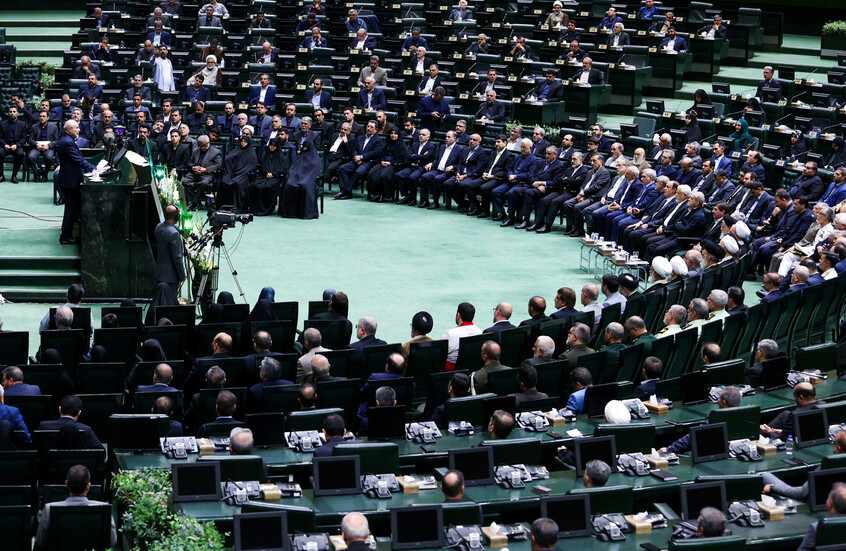Iran Suspends Cooperation with IAEA After Accusations of Collusion with Israel

The Iranian parliament today, Wednesday 25 June, agreed to suspend cooperation with the International Atomic Energy Agency, in response to Tehran's criticism of the agency and its Director General Rafael Grossi, accusing him of collusion in the Israeli attack on its nuclear facilities.
The Shura Council (Parliament) approved a bill to halt cooperation with the agency, with the final decision to be made by the Supreme National Security Council, according to the Iranian news agency "ISNA".
Parliament Speaker Mohammad Baqer Qalibaf stated, "The Atomic Agency, which refused to even issue a limited condemnation of the attack on the country's nuclear facilities, has compromised its international credibility at the cheapest prices," adding that "the Iranian Atomic Energy Organization will suspend its cooperation with the International Agency until the security of the nuclear facilities is ensured."
The decision came after repeated accusations from Iranian officials, including Foreign Minister Abbas Araghchi, against Grossi for his role in the "biased" report issued by the agency's Board of Governors over two weeks ago, which Tehran considered a "justification for the unprecedented Israeli attack."
The Iranian Nuclear Energy Agency announced its intention to file a complaint with the United Nations against the Director of the International Agency, while Iranian politicians called for banning him from entering the country, especially after accusing him of remaining silent on "Israeli and American strikes on peaceful nuclear facilities linked to an agreement with the agency."
Grossi, in a statement yesterday, Tuesday, called for "resuming cooperation between Iran and the agency," emphasizing that it is "essential to reach a successful diplomatic agreement." He also noted that agency inspectors are still in Iran and ready to return to the nuclear facilities to verify the uranium stockpile, which includes over 400 kilograms enriched to 60%, a level close to the necessary level for nuclear weapons.
The fate of this stockpile remains unknown after the strikes that targeted Iranian nuclear facilities, including Fordow, Natanz, and Isfahan on June 22, despite US President Donald Trump and his team's assertions of "eliminating the Iranian nuclear program," which Tehran has denied categorically and in detail.